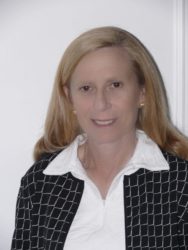Unpublished Thriller
Silent Survivor
Silent Survivor. While investigating the cause of her mother’s rare neurological disease, an Army nurse with her own secrets risks her life to uncover a covert government experiment aimed at developing a 21st century biologic weapon.

Deborah Shlian
Deborah Shlian is a physician and published author of medical mystery thrillers and nonfiction medically related articles and books.
At the 2017 Royal Palm Literary Award Banquet, author Deborah Shlian won First Place for her unpublished thriller, Silent Survivor. Each year at the RPLA Banquet, authors experience the joy of earning accolades for all the hard work that is often done in the privacy of the home with little to no recognition. We’re showcasing the best of the best with our First Place winners spotlight. Not only does RPLA recognize extraordinary talent, but we’re giving readers an opportunity to sample excerpts from the winning stories.
Click here to read an excerpt of Silent Survivor.
An interview with Deborah Shlian
Q: Where do you get your story ideas?
A: Because I am a physician, all of my books so far have some kind of medically related theme. As a Family Physician, I have had an opportunity to get to know so many different individuals over the years, to learn about their lives from a kind of intimate perspective that is quite unique. That has given me a breath of experiences from which to draw my characters and situations. Even though some people call my books medical mystery/thrillers, I have tried very hard not to write the same book each time out, so that Double Illusion, my first book is quite different from Wednesday’s Child, Rabbit in the Moon, Dead Air, Devil Wind and now Silent Survivor.
Q: Anything in particular about your award-winning RPLA entry that you’d like to share?
A: The logline for Silent Survivor is: Ex-Army nurse, 30-year-old Mackenzie (Mac) Dodd, risks her life to expose the devastating consequences of a covert government experiment. In her search for answers, she reveals her military sexual assault, becoming a champion for other #MeToos.
While the novel is a work of fiction, the main plot, as well as the various subplots, are based on very real contemporary issues.
For example, while PTSD has been shrouded in secrecy and shame within the military, there has been a virtual epidemic of suicides attributed to the disorder. Since 2001, more US service members have taken their own lives than have died on the battlefield.
The issue of military sexual assault (MST) has taken decades to gain public attention.
At least nine separate bills (like the one proposed by my fictitious Congresswoman Cooper) have been introduced in Congress by a bipartisan mix of senators and representatives, proposing a range of fixes. In February 2011, 25 female and 3 male vets who were sexually assaulted while wearing the uniform filed an abuse lawsuit (Cioca v. Rumsfeld) alleging that Robert Gates and his predecessor, Donald Rumsfeld had failed to curtail widespread rape in the military. However, within a month, the judge, dismissed the case
Contributing to PTSD suffered by survivors of military sexual assaults is the harassment of victims who make an official complaint. Ninety percent of them are eventually involuntarily discharged. Today women in the military are still more likely to be raped by fellow soldiers than they are to be killed in combat.
Gays in the military is a real issue one of my characters has to deal with. In 2011, President Obama signed legislation to repeal the Don’t Ask Don’t Tell policy (DADT), which had been passed by Congress and signed into law in 1993 under then-President Bill Clinton. According to the Pentagon, recruiters now accept applications from openly gay people.
The question of sexual assault on college campuses is another of Silent Survivor’s subplots. In 2014, Federal investigators investigated whether 55 colleges and universities in 27 states and in the District of Columbia illegally handled sexual violence and harassment complaints. A 2015 academic study reported that during their freshman year of college, 15 percent of women are raped while incapacitated from alcohol or drugs.
Finally, PsyOps (Psychological Operations) is very real. Between 2010 and 2014, PsyOps was renamed Military Information Support Operations (MISO), then briefly renamed PsyOps in Aug 2014, only to return to MISO shortly thereafter in 2015. It is a fact that the Army has been investigating psycho-pharmaceutical agents and behavior modification techniques that can diminish mental performance of our enemies, reducing their ability to fight. While there is no drug called Flotmetoquine, the premise that someone like my fictional character, Douglas Anders, MD, PhD could develop a pill that enhances performance – increasing alertness and above all, aggressiveness, is frighteningly plausible – especially at a time when the US is fighting wars in multiple locations with a small, volunteer Army.
Q: Who do you credit with inspiring your writing?
A: Hemingway’s style of short, crisp sentences was a major influence on my own style. I like to make the reader want to turn the page to see what’s next. Other physician writers like Robin Cook, Michael Palmer, and Michael Crichton have given me the courage to put pen to paper. My husband’s constant encouragement is probably the most important factor that has kept me writing.
Q: Any tips for new writers?
A. I think the business of writing (selling/promoting/marketing) is much more difficult and competitive than it was in the 1980’s when I wrote my first novel. That means it is harder today for a new writer to break out of the pack and become a best-selling author. As long as one understands that and writes out of love for the process, then I would encourage any aspiring writer to write.
A message about supporting literacy in Florida:
If every member of FWA went to Smile.Amazon.com, chose Florida Writers Foundation, Inc. as their charity and, instead of logging into Amazon.com, logged into Smile.Amazon.com, FWF would receive 0.5% of the purchase funds. Every time.
We could significantly fund the literacy efforts of our organization. No money out of your pockets…just some invested time to set this up.
How easy for us to make a difference. To see all of our work, please read the pages of our website www.floridawritersfoundation.com. You’ll be proud.
Melody Dean Dimick,
President, FWF

